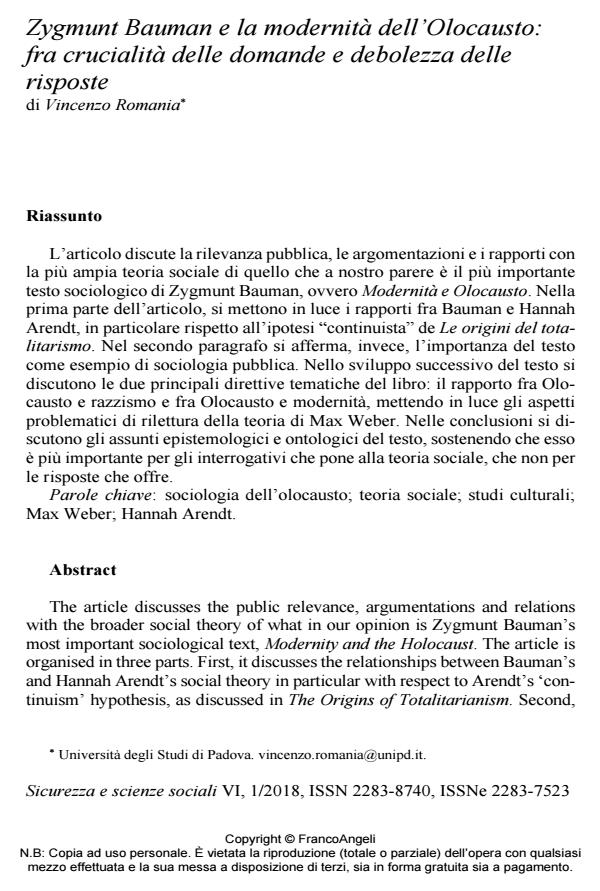Zygmunt Bauman e la modernità dell’Olocausto: fra crucialità delle domande e debolezza delle risposte
Journal title SICUREZZA E SCIENZE SOCIALI
Author/s Vincenzo Romania
Publishing Year 2018 Issue 2018/1
Language Italian Pages 13 P. 75-87 File size 190 KB
DOI 10.3280/SISS2018-001008
DOI is like a bar code for intellectual property: to have more infomation
click here
Below, you can see the article first page
If you want to buy this article in PDF format, you can do it, following the instructions to buy download credits

FrancoAngeli is member of Publishers International Linking Association, Inc (PILA), a not-for-profit association which run the CrossRef service enabling links to and from online scholarly content.
The article discusses the public relevance, argumentations and relations with the broader social theory of what in our opinion is Zygmunt Bauman’s most important sociological text, Modernity and the Holocaust. The article is organised in three parts. First, it discusses the relationships between Bauman’s and Hannah Arendt’s social theory in particular with respect to Arendt’s ‘continuism’ hypothesis, as discussed in The Origins of Totalitarianism. Second, we suggest the relevance of Bauman’s text as an example of public sociology. Finally, the two main thematic directives of the book are discussed: the relationship between the Holocaust and racism and between the Holocaust and modernity, highlighting the particularly problematic as-pects of the re-reading of Max Weber’s theory. The conclusions discuss the epistemological and ontological assumptions of the text, arguing that in our opinion Modernity and the Holocaust is far more important for the questions it poses to social theory than for the answers it provides.
Keywords: Holocaust studies; social theory; cultural studies; Max Weber; Hannah Arendt.
Vincenzo Romania, Zygmunt Bauman e la modernità dell’Olocausto: fra crucialità delle domande e debolezza delle risposte in "SICUREZZA E SCIENZE SOCIALI" 1/2018, pp 75-87, DOI: 10.3280/SISS2018-001008